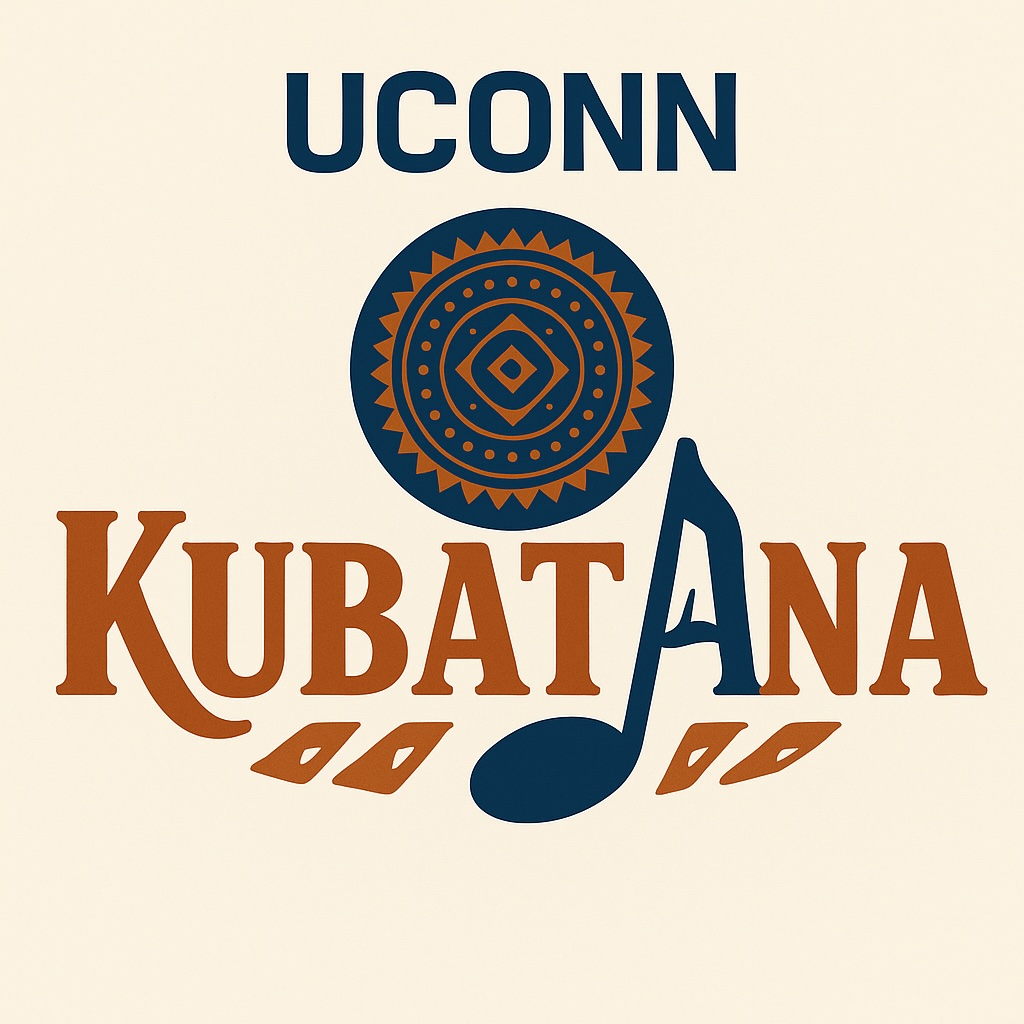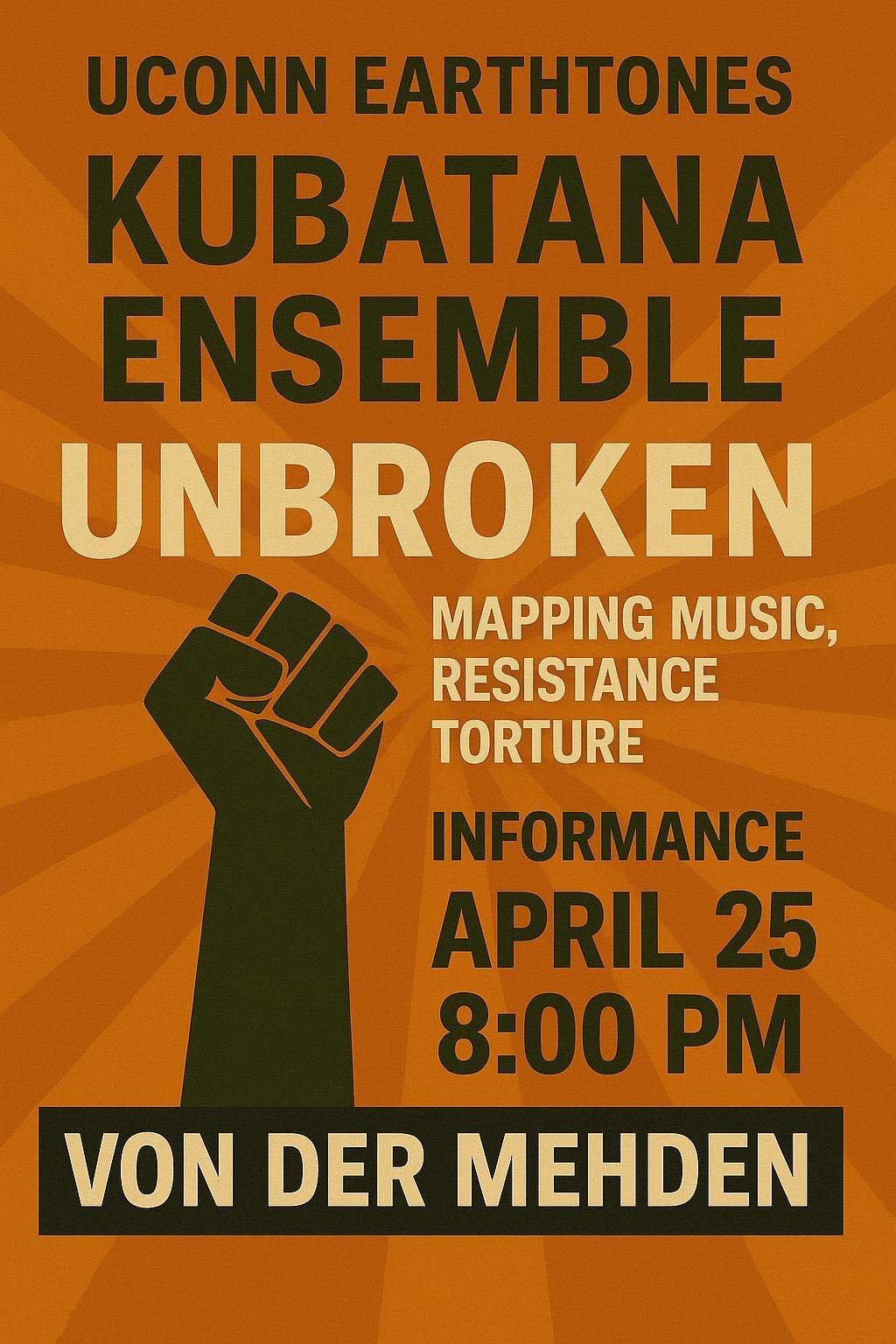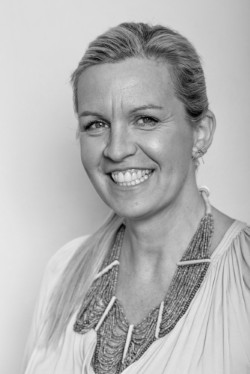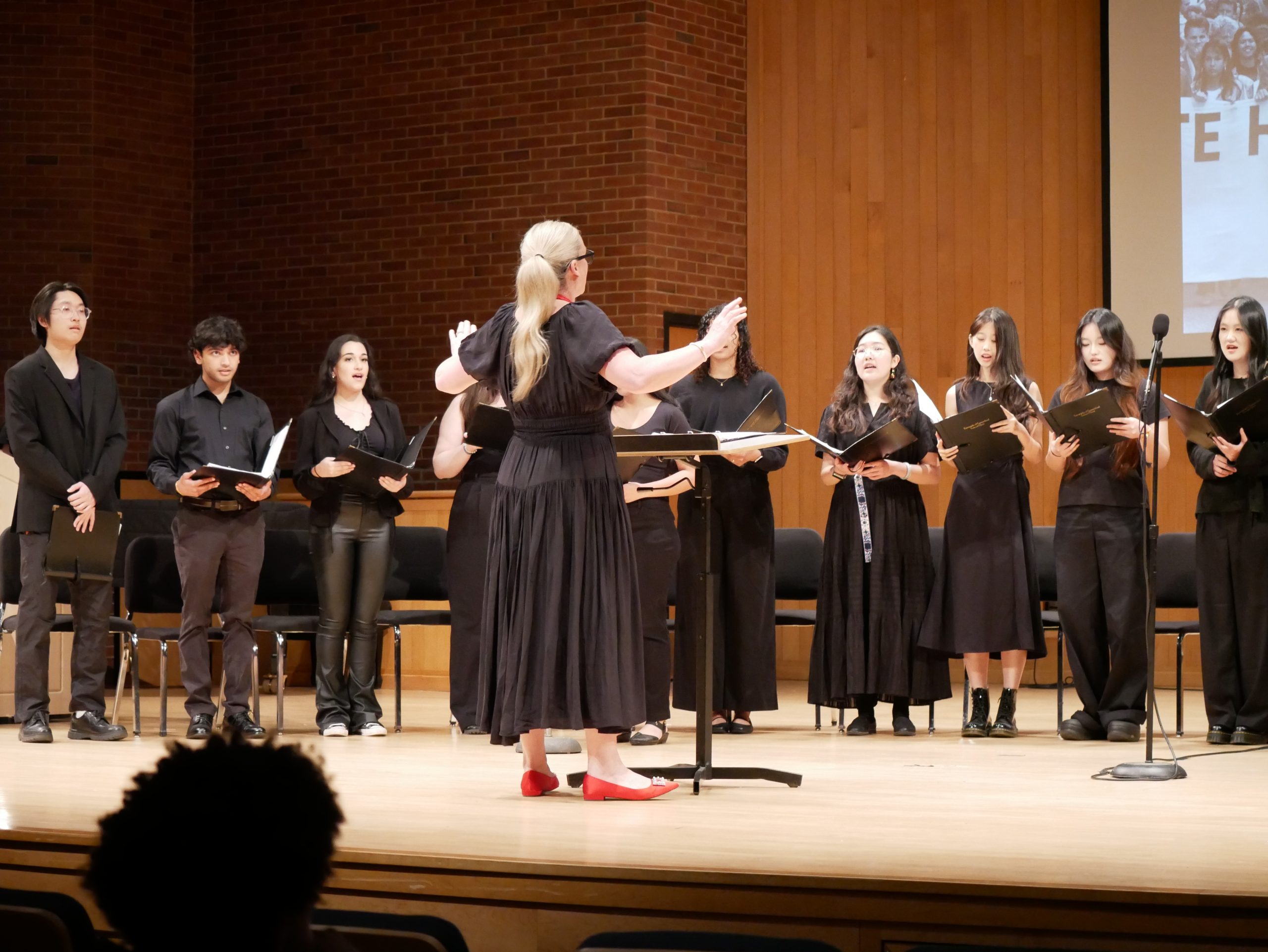
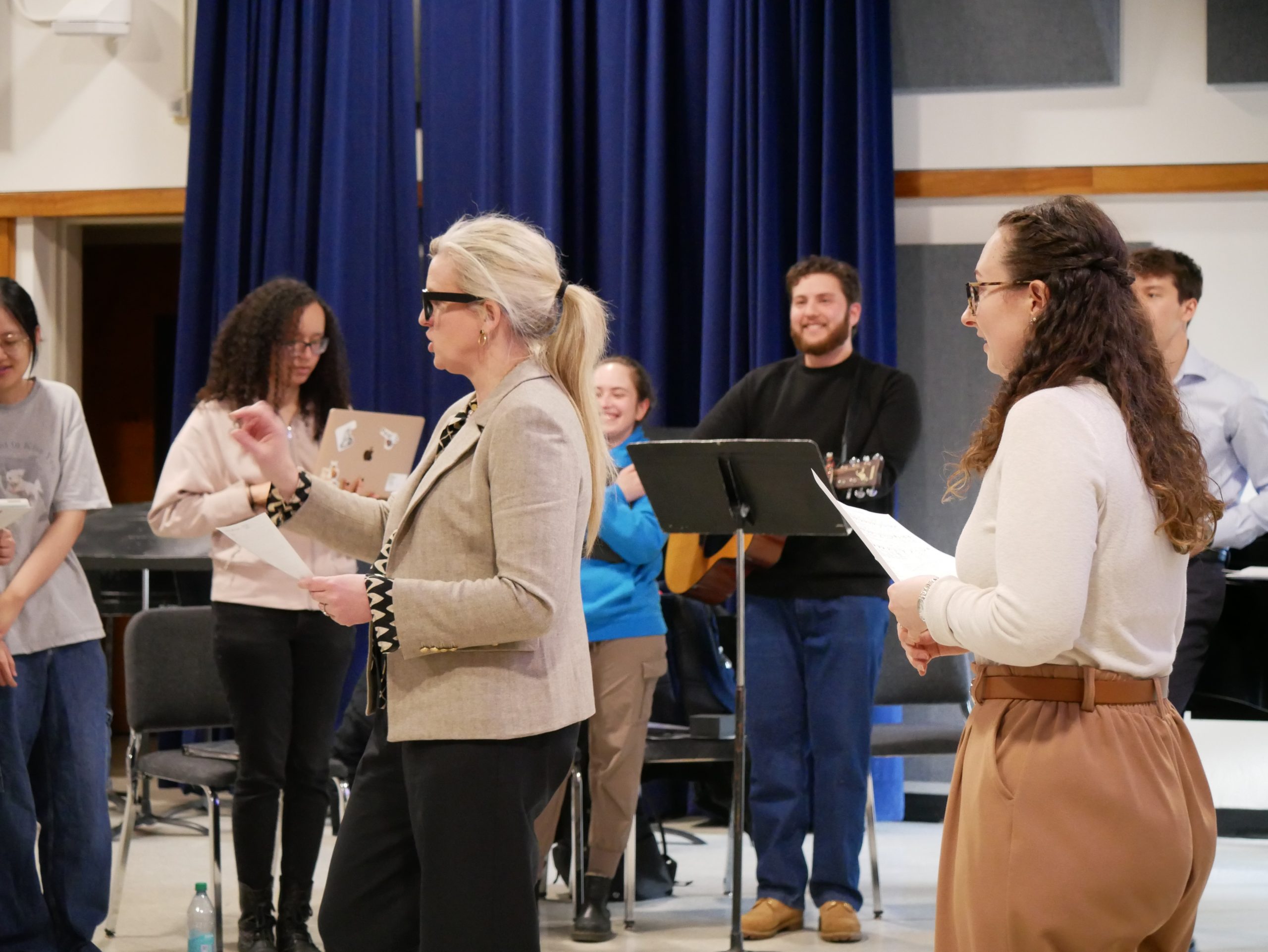
About
FINA 1001/MUSI 1006 section 001
Wednesday 3.30-5.30pm
Earthtones: Kubatana, UConn’s exciting global music vocal ensemble directed by Dr. Janie Cole, brings to life the musical cultures of different communities, geographical locations, or time periods from around the world as a means to broaden and deepen knowledge, tolerance, and understanding of people and their wider connections to humanity, history, spirituality, human rights, gender, religion, identity, politics, belief systems, race, and social justice.
Each semester an overarching theme is explored through key music, songs, testimony, short readings, and multimedia talks with guest speakers, to engage with one or more global cultures, historical time periods, or genres in depth with the goal of creating innovative and intentional music programs that open new spaces of dialogue and foster a deeper understanding of our shared humanity and resilience.
The Spring 2026 theme: “DISEASE: Sound, Stigma, Salvation”:
The UConn Kubatana Spring 2026 theme is “DISEASE: Sound, Stigma, Salvation,” focusing on the critical role of music in relation to global pandemics and humanity’s musical responses to disease, including health stigmas, death, ritual, public health messaging, and salvation through the centuries. By engaging with key musical repertories and testimony from different time periods and places in the world, we explore how different worldviews can shape how diseases are perceived and received, and how through music we seek salvation for humankind in times of momentous crises and suffering.
The program centers on notable global musical case studies — including musical responses to the recent COVID-19 pandemic and Long Covid, HIV/AIDS campaigns in Africa and the USA in the 1980s, the Plague in Renaissance Europe, the Ebola Outbreak of 2014, and Cholera in 19th-century Asia and South America — to examine how song can communicate across cultural differences and social stigmas to express what cannot be spoken of around disease, promotes or pushes back against racist or homophobic undertones underlying disease associated with certain demographics based on race, social or sexual orientation, and acts as a powerful vehicle for messaging and educating around public health issues to influence public behavior. It evokes the power of music to unify and encourage collective action and both to embrace and devastate our shared humanity in times of global crisis.
Earthtones: Kubatana is open to all university students and community members. It requires no auditions and fulfills 1 credit towards the CA1 Arts and Humanities requirement. The course can be retaken with a change of content to fulfill the CA1 requirement for 3 credits.
Student Testimonials
Abba Abrams (Senior, Liberal Arts & Sciences – Economics/Accounting):
“This course really made me reflect on how similar we all are; even as the classroom was filled with people of varying backgrounds and studying different fields, we came together to pay respect and to help give voice to people and movements that have fallen by the wayside in our understanding of history.”
Aviva Abrams (Senior, Liberal Arts & Sciences – Biological Sciences):
“This class gave me confidence in my own voice … I loved learning the context behind all the songs from people who were so passionate about history …
All in all, a one-credit course I didn’t think anything of, ended up being the highlight of my final semester at UConn and one of my fondest memories of college as a whole. Thank you to Shannon and Dr. Cole for the opportunity to explore history in such a unique light, and to explore my own fears and talents.”
Rachel Cleveland (Senior, Liberal Arts & Sciences – Physics):
“I learned so much and actually far more than I expected. One particularly powerful moment for me was when guest speaker Luciana Arroyo shared her personal connection to Argentina and spoke about the brutal dictatorships that took place there. Her presentation was deeply emotional, especially as she discussed the life of María Elena Walsh, who lived through five coup d’états. The atrocities committed against women and children were devastating to learn about but very important to understand.”
“The way music was used as both a tool of resistance and empowerment in the darkest times was moving. I never realized how deeply music could be tied to political struggle, survival, and identity.”
Gia Echevarria (Senior, Liberal Arts and Sciences – Psychological Scinences):
“In our rehearsals, we didn’t just focus on the technical aspects of singing. We also connected deeply with the emotions behind the music, which made the experience much more meaningful. Some of the songs we sang were challenging because they dealt with such heavy themes, but it felt important to be part of something that explored the impact of music in such a profound way.”
“One of the most rewarding parts of the semester was our informance, which went really well and was a highlight of the class for me. It was such a great experience to share our work with an audience and see how they reacted to the themes we were exploring.”
“It’s shown me that music is so much more than just something we listen to—it’s something that shapes our experiences, our emotions, and our connections with others. I’m grateful for the opportunity to explore these ideas through song and to be part of such a supportive and thoughtful choir community.”
Ryan Frier (Senior, Liberal Arts & Sciences – Molecular and Cell Biology/Statistics Science):
“I really enjoyed the course. It was probably the most engaging and fun class I've taken in college.”
Nick Garcia (Junior, Engineering – Computer Science/Information Technology):
“I’ve always found music to be a comforting and expressive outlet, but this class gave me a much deeper understanding of its power beyond just personal enjoyment. I learned how music has been used across history not just to entertain, but also to express pain, to unify people, and even to resist oppression. It amazed me how people used music in times of deep suffering, as a way to cope, remember who they were, and communicate their struggles to others.”
Furong Li (Senior, Education – Special Education/Human Development and Family Sciences):
“One moment that left a lasting impression on me was while editing the testimonies from South Africa. One interviewee said that music wasn’t just a way to pass time; it was a way to confirm that their companions were still alive. Although these topics span across the world, moments like that made me feel a real connection to those people through music.”
Jordan Candelario (Junior, Liberal Arts & Sciences – Molecular and Cell Biology/Music)
“I am now trying to look at music with more of a critical lens; instead of assuming that music can only be used for positive effects, I now recognize that music and entertainment in general can be used to spread certain negative messages, sometimes going unnoticed by the general public. It really made me think about the media I consume in my daily life and what themes and messaging they include, and where that messaging may be coming from.”
